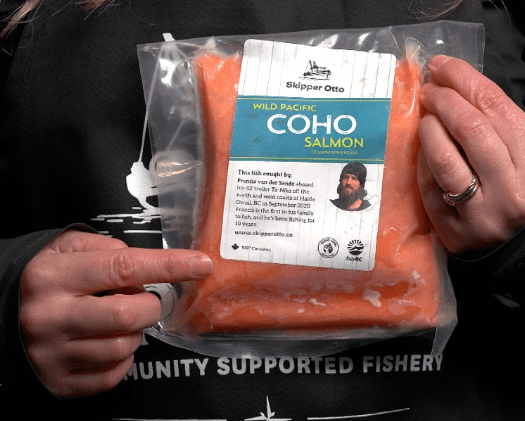Fraud On The Seas And Your Plate
NewsIs seafood fraud finding its way onto your plate? With studies revealing that 44% of seafood in major Canadian cities is mislabelled, there's a good chance you're getting something else.

Seafood Fraud Still Impacts 40% Of Seafood In Canada
Is Seafood Fraud Finding Its Way onto Your Plate?
When you go to a restaurant or grocery store to spend hard-earned money, you want to get what you’re paying for. We all do! When it comes to seafood, there’s a good chance you’re getting something else. Mislabelled seafood is a big problem in Canada.
Multiple studies have revealed the scope of the problem. The University of British Columbia conducted a study, published in 2018, revealing that nearly a quarter of seafood in the Lower Mainland of BC was mislabelled. That same year, Oceana, an ocean advocacy organization, found that 44% of seafood in major Canadian cities was mislabelled. The University of Guelph conducted a study in 2019 that found that almost 40% of retail seafood was mislabelled. And according to the Guardian’s 2021 analysis of 44 recent studies on the mislabelling of seafood, nearly 40% of the fish studied is still not what it claims to be. Clearly, this problem is not going away.
At Skipper Otto, we have high standards of traceability and transparency because we want our members to know exactly what they are feeding their families. Our seafood labels include the common and scientific names for the species as well as details about who caught the seafood and where, when and how they caught it.
Sadly, we seem to be the exception, not the rule. Mislabelling is rampant and impacts the wallets and health of Canadians. And it has serious ramifications for ocean and fisheries health.
Seafood Fraud & Your Wallet
Seafood lovers are often willing to pay top dollar for their favourite species. But, as it turns out, many Canadians are paying more for less. Oceana found that 74% of incorrectly labelled seafood is listed as a species that is more expensive. This hurts consumers and it punishes responsible fishermen with unfair competition.
Seafood Fraud & Your Health
Fraudulently labelled seafood often masquerades as a safe option when it is, in fact, a species associated with health risks. There is the issue of allergies, of course, but this can also impact people with no food allergies.
Escobar, which is often labelled as butterfish or white tuna, is known as the laxative of the sea. Escobar can cause acute digestive issues such as diarrhea, vomiting or nausea. Some species of reef fish that are often mislabelled as yellowtail or red snapper contain a toxin called ciguatera that can cause neurological issues. If the problem isn’t treated within days of exposure, the neurological issues can become long-term. And if you don’t know you’ve been exposed to ciguatera, you won’t know to get treated for exposure. Scary stuff.
Seafood Fraud & Endangered Species
We all know that healthy ecosystems need species diversity, and most people would not choose to eat an endangered species. I sure wouldn’t. Nearly one-third of the mislabelled samples in the Oceana study were endangered, threatened or vulnerable species labelled as species that are okay to eat. Eating these fish threatens the species’ already fragile abundance. And people are doing it without even knowing. It’s heartbreaking.
Illegally caught seafood often enters the marketplace with fraudulent labels that make it appear to be a legal catch. This undocumented pressure puts fisheries at risk because many restrictions are put in place to protect vulnerable species and maintain healthy stocks. When seafood is harvested out of season or in protected waters, the health of that fishery is threatened.
This is a big issue for us. We take every measure possible to be responsible with our labelling, and we work with fishing families who value ethical practices. But we’d like to see seafood fraud stopped for good.
What can you do?
We need regulations in Canada that deter seafood fraud. You can help make that happen by signing Oceana’s petition asking the Canadian Food Inspection Agency to implement full boat-to-plate traceability for all seafood sold in Canada.
Boat-to-plate traceability is what we do at Skipper Otto. We can (and do) tell our members exactly who caught every fish and where, when and how they did it. Traceability rules really do make a difference. The European Union has strict traceability and labelling requirements and has a mislabelling rate of only 7%.

To avoid fraudulent seafood on your own plate, you can buy seafood from businesses that participate in boat-to-table traceability.
If you’re a member of Skipper Otto, you know you’re getting what you paid for. Not a member yet? Sign up today for the peace of mind that comes with ethical labelling.
